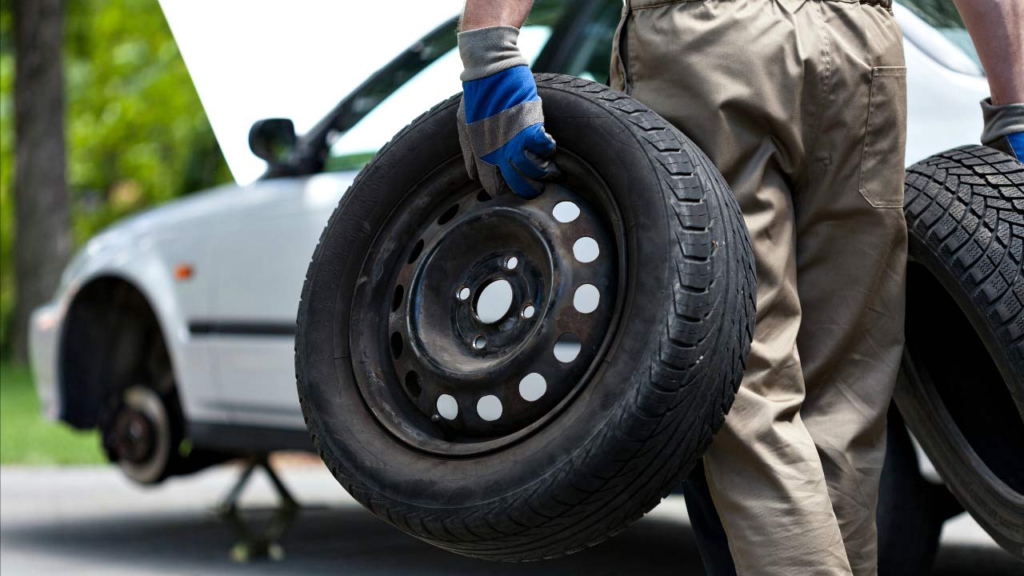Location
1716 w 21 st, Jacksonville, FL 32209, United States
Phone Number
(904) 236-8871
What Are the Signs That It's Time for a Tire Change?

Making sure your car has the right tires is very important for safety and speed. People often don’t think about their tires until they break, but they are the only part of your car that touches the road. By regularly checking your tires and knowing when to change them, you can avoid accidents, save money on fuel, and enjoy a smoother ride. But how do you know when you need to change your tires?
Signs That Indicate It's Time for a Tire Change
To keep your car safe and running well, you need to know how to tell when your tires are looking old. Here are some important signs that it might be time to change your tires.
Cracks and Cuts in the Sidewall
A tire’s sidewall is the part that faces away from the car and helps keep the tire’s structure strong. Damage to the rubber from sun, heat, and chemicals can happen over time, causing cuts and cracks. These can be dangerous because they weaken the structure of the tire, which makes it more likely that it will blow out.
Check your tires’ sides often for any damage that you can see. It’s important to get a new tire right away if you see any cracks, cuts, or gouges. Over time, even small cracks can get bigger, making your tires less safe.
Vibration While Driving
If you feel bumps while driving, especially at higher speeds, it could mean that your tires aren’t working right. Several things could cause this sound, such as:
- Uneven weight distribution can cause the tire to vibrate.
- Misaligned wheels can lead to uneven tire wear and vibrations.
- Internal damage or structural defects can also cause vibrations.
If you notice vibrations unrelated to the tires, such as those caused by issues with the suspension or wheel bearings, address them promptly. If the noises don’t go away, you should have a professional look at your tires and car.
Tire Age
You might need to get new tires even if they look fine. Tires lose their effectiveness over time as the rubber materials inside them break down. This makes them more likely to fail. A lot of tire companies say that you should get new tires every six years, no matter how worn the tread is, but no more than ten years.
To see how old your tire is, look for the DOT code on the rim. This code tells you the week and year that the tire was made. If your tires are getting close to or past six years old, you should think about to change the tire. This is especially important if you’re going on a long trip or driving in bad weather.
Reduced Traction and Grip
When your tires lose their grip and stability, they may skid, take longer to stop, and be hard to control, especially on wet or icy roads. Tires with these signs usually have worn-down tread or rubber that has swelled making it less able to grip the road.
Maintaining the best grip is important for safe driving, especially when the weather is bad. If you notice that your car’s grip is getting worse, especially when you’re speeding up, slowing down, or turning, it might be time for new tires.
Damaged Valve Caps
Valve caps keep the air pressure steady by keeping dirt and other things from getting into the valve stem. If the valve caps are missing or broken, air leaks and dirt can get into the valve, which could cause slow leaks.
Even though valve caps are small, they play a big part in keeping tires in good shape. If you see any damage to the valve caps, you should change them right away to keep the tires properly inflated and make them last longer.
Noisy Tires
Some tire noise is normal, especially on some types of roads. But noise that is too loud or doesn’t make sense can be a sign of a problem. Uneven wear, damaged tires, or the wrong tire pressure are all common reasons.
If the noise from your tires is different at different speeds or on different types of roads. You should get them checked out. Tires that make noise could be about to fail, so it’s best to be safe and change them if you need to.
Frequent Punctures
Some signs that your tires are nearing the end of their useful life or aren’t right for your driving conditions are frequent holes or other damage to your tires. Punctures happening often can be annoying and dangerous, as they can cause sudden stops and even blowouts. If you drive on rough roads or in places with a lot of trash. You might want to get tires that last longer. Also, make sure that the tires you buy are right for your car and the situations you usually drive in.
Conclusion
It’s important to know when to change your tires to keep your car safe, running well, and using less fuel. You can avoid problems and enjoy a better, smoother ride. By being aware of the signs of damage and wear and knowing how important it is to have your tires serviced regularly. Buying good tires and replacing them when they wear out saves you and your passengers and makes driving more enjoyable.
